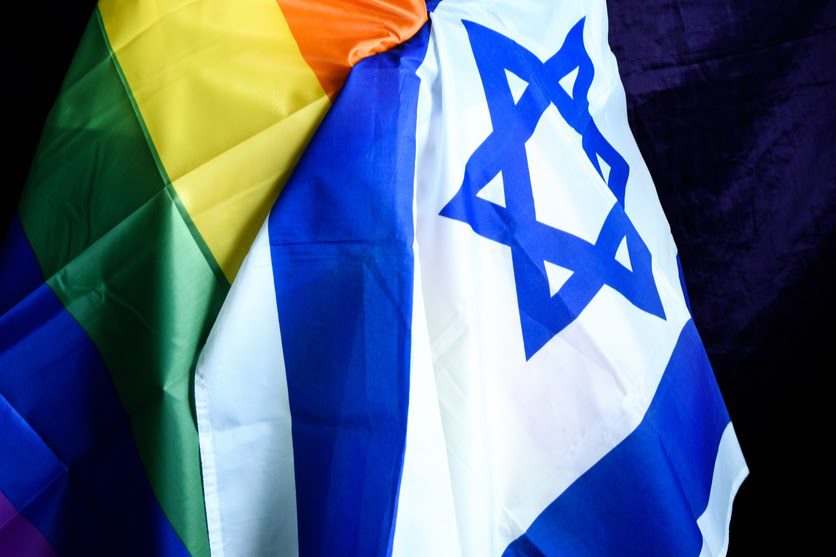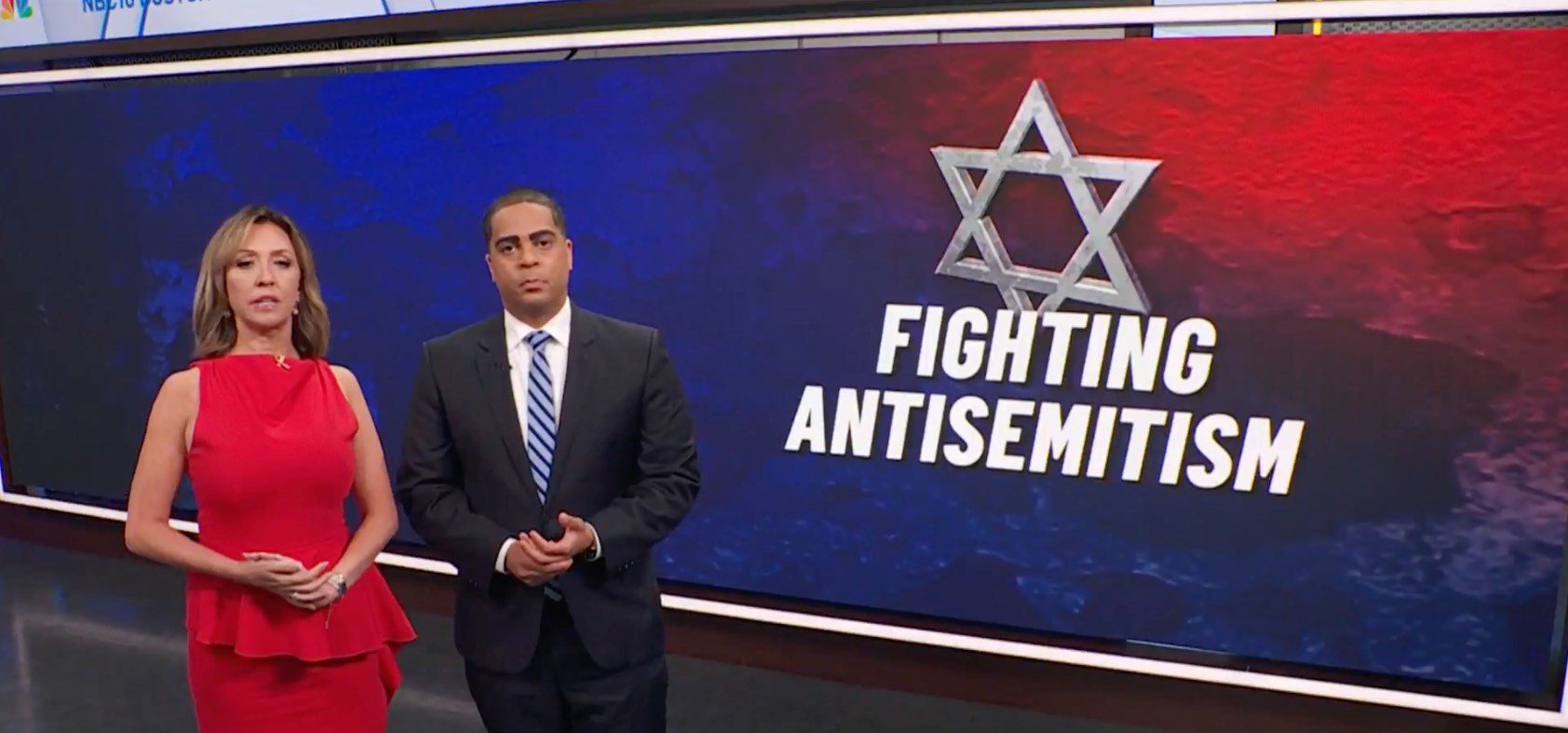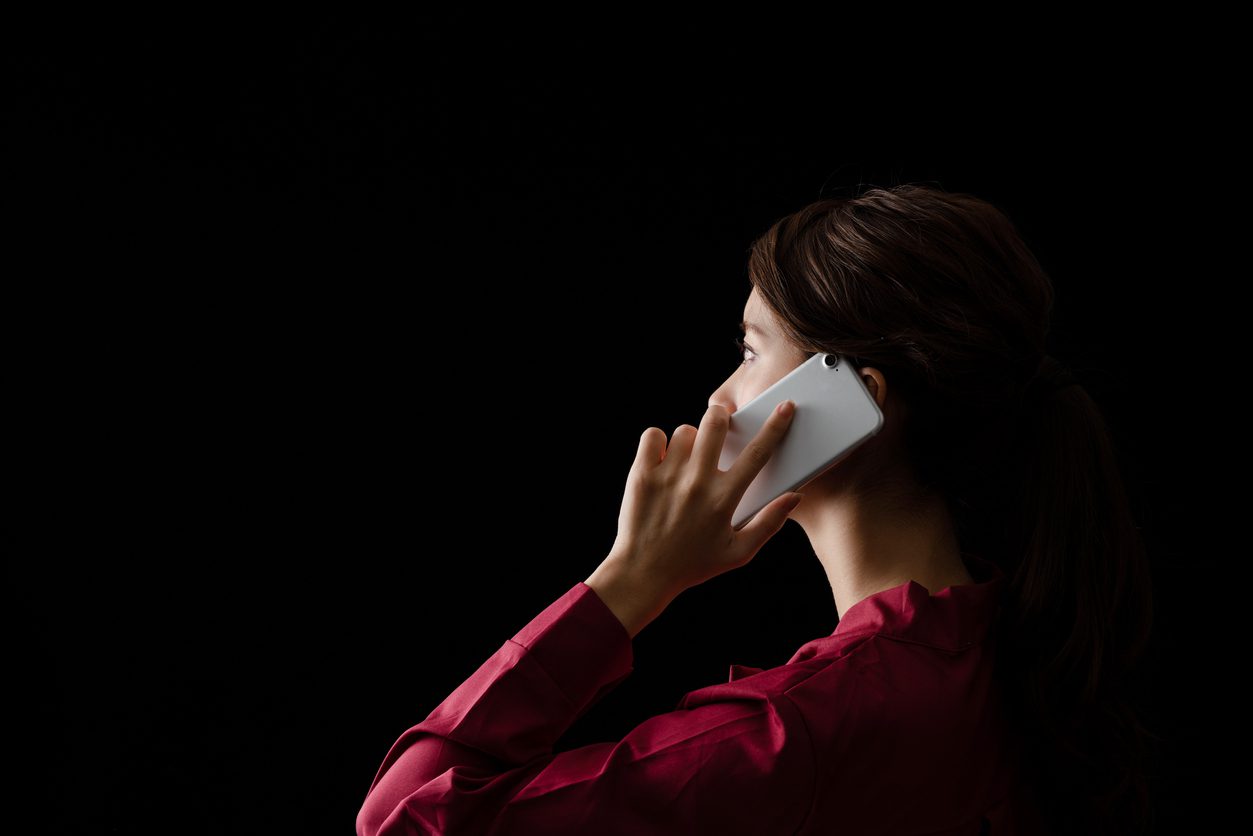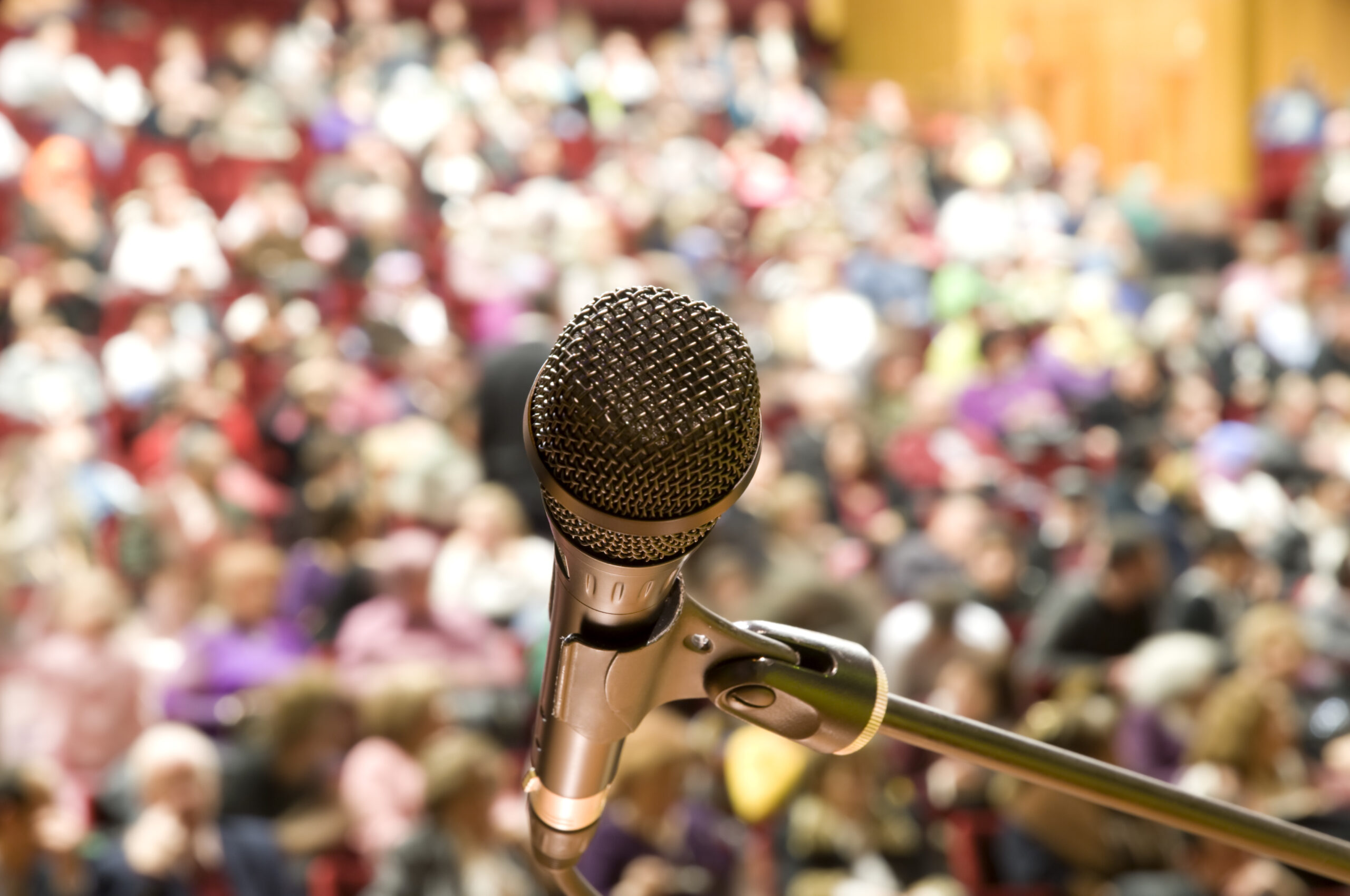On Wednesday, July 12, NBC Boston interviewed Chanie Krinsky of Chabad Jewish Center in Needham and CJP’s Sarah Abramson about what has become a horrifying trend.
Persona: Friends & Allies
When Antisemitism and Anti-LGBTQIA+ Hate Converge
By Rich Tenorio

Pride Month is a time to both mark the progress we have made in LGBTQIA+ rights and recommit to continuing the fight. The attacks against LGBTQIA+ people in legislatures and communities across the country, alongside rising antisemitism, remind us of the work ahead. For LGBTQIA+ Jews, the intersection of anti-LGBTQIA+ hate and antisemitism heightens fear and concern.
“There is absolutely a connection between antisemitism and anti-LGBTQIA+ hate,” Jay Smith, chief communications officer of the national Jewish LGBTQIA+ advocacy group Keshet, wrote in an email. “We see similar tropes and conspiracy theories around power, grooming and predators. Currently, we see that the same groups protesting drag shows and Pride events are those with white supremacist and antisemitic views.”
Last year, there were over 140 anti-LGBTQIA+ protests at drag events, with some protests also featuring antisemitic propaganda and signs, according to “Antisemitism & Anti-LGBTQ+ Hate Converge in Extremist and Conspiratorial Beliefs,” a January 2023 release from the Center on Extremism at the Anti-Defamation League that Smith referenced.
Gabriella Spitzer, a queer Jew who spoke at a Pride Shabbat at their hometown synagogue, Temple Israel of Sharon, voiced concern about queerphobia in Jamaica Plain, including vandalism at a local church and protests outside a drag story hour.
“The response to these incidents has been strong and interfaith, and I really appreciate some of the leadership of some of the local queer Christian clergy in speaking up against both anti-queer hatred and antisemitism,” said Spitzer, the author of a new Haggadah released this year, “Haggadah Min HaMeitzar: A Seder Journey to Liberation,” which they describe as traditional, queer and environmental.
“I’m very aware of the rise in Christian nationalism and white power and general fascist tendencies in this country,” Spitzer said. “And, more broadly, I am aware that whether the focus of the moment is queer folks or trans folks or Jews, it all comes from the same root of hatred and white supremacy and Christian supremacy.”
They cited a historical precedent—Magnus Hirschfeld, a Jewish German sexologist whose books were burned by the Nazis. Hirschfeld was included in an anti-trans section of a manifesto written by the perpetrator of a mass shooting at a Buffalo supermarket in May 2022.
“I wish [Hirschfeld] was a story I learned in Jewish day school, not as an adult,” Spitzer said. “But it is a very important story to me, and in thinking about how fragile progress can be, how much, how far back the Nazis could put the world…only in the last couple decades are we back to where Magnus Hirschfeld was 100 years ago. And I think it’s an important point in thinking about how these kinds of hatreds are connected, and have been, and there’s nothing new about that connection. It’s old, and deeply felt in a lot of places.”
Most individuals interviewed for this article expressed particular concern about a right-wing convergence of anti-LGBTQIA+ hate and antisemitism—among white supremacists in particular. In addition, the ADL release from January cited multiple reports of such convergence.
“Hate groups view both Jews and LGBTQ+ people as a threat to Christian supremacy,” Smith said. “For centuries, antisemites have propagated conspiracy beliefs that Jews are undermining society and responsible for any unwanted changes in attitudes or social structures. Today, those lies are being told about LGBTQ+ people as well. These beliefs are extreme and dangerous, and the threats we face are real. As LGBTQ+ Jews, our lives and communities are at increased risk for violence.”
One interviewee, Southern Connecticut State University English professor Corinne Blackmer, noted a convergence in homophobia and antisemitism on the left. Blackmer, a self-described Jewish lesbian feminist, experienced it personally in 2009, during the Gaza War between Israel and Hamas. She reported that her office door was vandalized with antisemitic, homophobic and anti-Zionist graffiti.
“I’m not scared of my identity,” Blackmer said. “I put it on my office door. Really hateful comments were made.”
According to Blackmer, when she was about to call the campus police, she found a threatening homophobic and anti-Zionist voice message. She followed through on notifying the campus police, who called in the New Haven police as a backup. The local media covered the story—albeit not in the way she had hoped.
“[They] were perfectly willing to talk about this as an anti-gay attack, but very reluctant to talk about the anti-Zionism,” Blackmer said. “I continued to stress this was anti-Zionist. It really was, and also antisemitic.”
She described further harassment—mud was daubed on her car, and there was another threatening voice message. She also said she was upset when a colleague attributed the attacks to a homophobic patriarchy but did not mention the anti-Zionist aspect.
Blackmer went on to travel to Israel in 2016 through a grant from the Schusterman Center for Israel Studies at Brandeis University and met with Israelis and Palestinians, including gay Palestinians whom she said have a difficult time on both sides of the Green Line. More recently, she published a book, “Queering Anti-Zionism: Academic Freedom, LGBTQ Intellectuals, and Israel/Palestine Campus Activism.”
“The book has been doing very well,” she said. “There’s been a lot of interest in it…Either I could hide away [and] avoid these issues, or take them head-on. I decided to take them head-on.”
Rich Tenorio covers antisemitism news for JewishBoston.com. His work has appeared in international, national, regional and local media outlets. He is a graduate of Harvard College and the Columbia University Graduate School of Journalism. He is also a cartoonist. Email him at rich@jewishboston.com.
Why Reporting Antisemitism Matters
By Kara Baskin
Speaking up to report an antisemitic incident takes courage. It requires vulnerability. But it’s also immensely powerful. While you should absolutely contact law enforcement if you’re the victim of a crime, we all know that antisemitism can be so much more insidious: Maybe you spotted vandalism at a school or read antisemitic content in a news story. If you see or experience something antisemitic, you can report an incident to the Anti-Defamation League (ADL).
Why? The ADL was founded in 1913 to stop the defamation of Jews, going on to branch out to all forms of racial bias and extremism. Today, the ADL logs all reports of antisemitic incidents. From these reports, they harness annual data to identify trends, which informs outreach to law enforcement, community leaders and lawmakers. They also partner with schools on anti-bias initiatives.
Most of all, their published reports are a crucial snapshot that captures the state of bias in the United States. Thanks to their reporting, it was revealed that antisemitic incidents in the U.S. reached an all-time high last year with a total of 3,697 incidents of assault, harassment and vandalism tracked by ADL’s Audit of Antisemitic Incidents. This represents the largest number of incidents against Jews in the U.S., recorded by ADL since 1979. Knowing this, the ADL can craft tools to target and vanquish hate—and to amplify the problem, backed up by data, reminding all of us that antisemitism is still incredibly widespread.
So, what can you do? To demystify the reporting process, I spoke to Peggy Shukur, interim regional director of ADL New England.
People might consider reporting something and then wonder: To what end? Why report an incident?
I want to make sure that everybody knows that if they report—even though they may feel very vulnerable, and that it’s scary, and they’re putting themselves out there—they can do it anonymously. We’re not going to share their name or information with anybody.
The act of reporting is so helpful, because we use those numbers for our audit of antisemitic incidents. We’re able to take that to policymakers, to elected officials and to the community to say: This isn’t a problem of the past. This is a problem of today. For example, we can advocate for additional funding for Holocaust education and for community security grants to protect faith-based institutions to offset some of those exorbitant costs of additional security that, unfortunately, is a requirement for Jewish congregations. Public data gets attention.
What exactly does the ADL do with this data and with this information? How do you make these numbers work for the public good?
Each year, we do an audit of antisemitic incidents of harassment, vandalism or assault against individuals and groups that were reported to ADL. We typically don’t include online incidents, because there’s no way we could categorize everyone who is harassed online. We take the information, and we make a phone call to the person who reported it. It may be as simple as: “We’re aware of this; we’ll be back in touch with you if we need more information.”
For example, when a swastika was found in Natick in April, we had probably a dozen incident reports on that. We want to let people know we’re on it and we’re aware, but we just don’t have the resources to call every single person back. Our work is to categorize it: Does it meet the requirements of vandalism of property or harassment or assault? Is it clear that there’s some sort of anti-Jewish animus on the part of the perpetrator? We will make our own best judgment of whether a reasonable person could conclude that they were victimized due to their Jewish identity.
How do you determine what rises to the level of an antisemitic incident?
There’s a lot of judgment. We don’t just take everything as reported. We get our fair share of trolling incidents and fabricated incidents, which are pretty easy to vet and not include. There are a lot of people out there who just don’t know where else to go and who report things that are troubling or concerning, which might indicate some sort of mental health need but wouldn’t really be an antisemitic incident.
If 12 people report the same incident, does the ADL count it as one incident? Or do you count each report?
One incident. Consider something like banners on overpasses. It’s one incident, even though many people were harmed and affected by it. We also compile another report on white supremacist propaganda. A subset of that is antisemitic in nature. But some of it is anti-gay, racist, et cetera. Reporting those incidents is also really important to us because we track extremist movements as well. That’s really important information to us, as we’re looking at trends and where these groups are operating.
Why is this reporting so important overall?
It’s important to count and validate. It’s also important for many individuals to report because it validates what they’re experiencing, which is often fear and intimidation. That’s a really important thing to acknowledge. There’s a lot of gaslighting with antisemitism, unfortunately—people saying: “It’s not so bad. You shouldn’t feel so bad about this. It’s not a big deal.” And, actually, it is a big deal.
I also like to stress that, with reporting and acknowledging that antisemitism is a real problem, it allows people to be empowered to act. At the end of the day, we want the full community to feel that they are not alone and that together, they can stand up and confront antisemitism. And I think that having a way to report this, to acknowledge it, to see the numbers, is a really important component to that work of making people feel like it is legitimate to raise this as an issue. The harm they’re feeling can be heard and seen.
What can someone who reports expect after they file?
They should expect some kind of email or phone call, but we are not a legal services agency. When somebody feels like they need a lawyer, the best we’re going to be able to do is refer them to someone. There are limitations to what we can do. People often want us to shut down a speaker on a topic, which we can’t do, because of the First Amendment. But we can do some things around the situation. For example, if a university is hosting a speaker, we can ask the university to distance themselves from any hateful views of that speaker, even if it’s taking place on the university’s campus. We will work with people to try to find a way to address the concern.
If there’s a school-based incident, we will call the principal and maybe the superintendent to ensure they know about the professional development services that we can provide in terms of anti-bias education. We have a really wonderful guide for school administrators on responding to incidents of hate and bias when they happen, including how to communicate with your school community.
Believe it or not, there are still schools at which an incident will happen—and, of course, kids are going to come home and talk about it—but the school won’t put out a communication for whatever reason. Maybe they just think that it’s a bad reflection or it gives too much attention. That is not our recommendation. We’ve put all of that advice—a roadmap to responses—available for free online. It includes reflection moments. It’s not just focusing on the person who perpetrated the incident; it’s for all the people who are affected by it to use as a teachable moment. We’ve been trying to provide resources for the most common types of incidents. In terms of what you can expect if you report, you can expect that we will get in touch with your school and provide those resources to them so that this kind of incident ends up being a teachable moment.
In Natick, the town knew just what to do. They reported it. Law enforcement got involved. They organized a rally. We’ll count that; we’ll also do our best to make a call, in that case to the organizers of the rally just to make sure they knew we’re available as a resource and support.
How do you interact with communities and schools?
We want to make sure that schools have the resources to respond to these types of incidents in the future as well. While we won’t be so much a legal advocate, we want to make sure that our guides are in the hands of the right people, that they have available professional development so that educators are well-versed in addressing issues of hate and bias—not just limited to antisemitism, because it’s all connected.
There may be particular cases where we’ll be involved enough to write a letter to say: “We’re concerned about XYZ, or this was brought to our attention,” and try to facilitate a meeting about what’s going on. For example, we were involved in some incidents in Danvers a couple of years ago, involving a hockey team and some antisemitic, anti-gay and racist messaging. That might be a situation where our involvement might be a little bit deeper. In most cases, there’s a lot of receptivity from schools for these resources, because they don’t have this at their fingertips. In my perfect world, we would find a way to distribute this to every superintendent for use in their school district—because it’s not if an incident of hate or bias is going to happen, it’s when.
Can a school district call you? Or do you reach out to them?
School districts can call us at any time. We have educators on our staff, and they are involved in delivering our World of Difference anti-bias peer learning program, as well as providing professional development for educators throughout New England. We also run the No Place for Hate program, which schools can elect to join at no cost, where they commit to doing three anti-bias activities in the course of a year and be designated a No Place for Hate school.
Who else do you work with?
Individuals in the community—perhaps an individual who isn’t given enough of a religious accommodation or gets some sort of penalty if they try to take days off for particular holidays. That’s a common one. We might be involved with the sale of antisemitic content online. A couple of years ago, for example, there was a company selling a caricature of a Jewish merchant with a big nose, greedy looking. This is an example of where we jumped in and worked with [the vendor] to stop selling something.
What might stop people from reporting, and what can you share with those who are reluctant?
I really want to remind them that these numbers are important. We won’t share their name or any information with law enforcement. We won’t publicly disclose any of their information. Sometimes people just need to be heard.
There is often a fear of retribution, but people still need to have their stories heard. We are able to collect those stories and follow those trends, which informs the education and prevention work that we do. We begin with incident response, but that’s not where ADL’s work ends. We’re involved every day on the education side of fighting hate and bias.
Kara Baskin is the parenting writer for JewishBoston.com. She is also a regular contributor to The Boston Globe and a contributing editor at Boston Magazine. She has worked for New York Magazine and The New Republic, and helped to launch the now-defunct Jewish Rock and Roll Hall of Fame. Email her at kara@jewishboston.com.
When Celebrities Make Antisemitic Comments
By Rich Tenorio
In the fall of 2022, Kanye West made multiple controversial comments about Jews. In a particularly notorious example, he tweeted, “I’m a bit sleepy tonight but when I wake up I’m going death con 3 on JEWISH PEOPLE,” which the media has interpreted as a reference to the DEFCON 3 military preparedness system.
When celebrities make antisemitic comments, the consequences are magnified dramatically through the number of people they can influence, including white supremacists on the fringe who become emboldened to air similar views—or worse, act out violently, according to experts in the Boston area.
“It’s getting to be a greater issue, in particular because of celebrities who have huge social followings,” said Peggy Shukur, deputy regional director of the Anti-Defamation League.
She referenced a Nov. 4, 2022, New York Times article, “Between Kanye and the Midterms, the Unsettling Stream of Antisemitism,” which noted a troubling statistic: West’s Twitter following exceeds the global Jewish population.
Amy Shanler, the associate chair of the Department of Mass Communication, Advertising and Public Relations at Boston University, also noticed the op-ed and the statistic about West’s Twitter followers. Although she called it speculation on her part, Shanler said that West possibly “enjoys riling up people, and getting people to talk about him.”
Some have gone beyond words, including white supremacists who displayed messages in support of West on banners atop freeway overpasses in California and New York, and via lasers projected on a college football stadium in Florida. More recently, threats were made against synagogues in New Jersey that prompted a direct warning from the FBI. While a connection to West’s comments has not been made, Shanler wonders to what extent there was an influence.
“I can’t make a direct line,” Shanler said. “What I do think happened is that his remarks have inspired antisemites to be more vocal, to be more expressive in their feelings. I’m not law enforcement; I don’t know the details in that investigation. But I do think it’s like an epidemic continuing to spread and permeate. Perhaps, maybe, without [West] saying [his remarks], hate-group supporters of Kanye or somebody angry toward the Jewish people would not have been spurred on, would not have been inflamed.”
The West controversy is not the only recent example of a celebrity accused of antisemitism. Brooklyn Nets basketball player Kyrie Irving tweeted about a controversial documentary called “Hebrews to Negroes” that alleged Jewish involvement in the slave trade.
“He was tweeting support for a documentary that was very antisemitic,” Shanler said.
The Nets suspended Irving for five games, prompting an apology from him.
“I began to question the intent behind it,” Shanler said of his statement. “It felt like a disconnect, not like true contrition or that he was actually going to take any steps to try to understand what he said was really wrong.”
The ADL’s Shukur said it’s important to differentiate between those making comments about Israeli policies and those questioning Israel’s right to exist.
Pink Floyd’s Roger Waters, whom the ADL has identified as a “leading anti-Israel activist” and supporter of the boycott, divestment and sanctions movement (BDS), and who has also accused Israel of apartheid, is in the latter category.
“Many people have expressed their views on Israel and the Mideast conflict,” Shukur said. “Some do this in ways in which they are critical of the Israeli government. That’s totally fair game. As Americans, we criticize our government, our leaders, all the time.
“Many take issue,” she added, “when anybody doesn’t just go criticizing Israeli policies but criticizes the right of Israel to exist as a Jewish state [and] endorses the BDS movement. That gets to the root of it. When we hear celebrities amplifying this message, we take note; we are concerned.”
Shukur is also concerned with the presence of antisemitism in politics today.
“I think that while we’re seeing it in the celebrity space, the athlete space, it’s also in the political arena, things like ‘Jewish space lasers,’ ‘Jews control the weather,’” Shukur said. “There has been an injection of antisemitism in a lot of campaign rhetoric this year. You can see fringe views from actual candidates, some of the oldest antisemitic tropes, in an effort to be elected.”
Robert E. Rosenthal, chair of the Department of Advertising, Public Relations & Social Media at Suffolk University, also noted instances of antisemitism among political celebrities on the right and left.
“If you count politicians as celebrities,” he said, “there are a lot of politicians, including former President Trump, who have made antisemitic remarks, as well as from the left, people like Alexandria Ocasio-Cortez.”
“Everyone has a role in making sure [antisemitic] statements do not get normalized,” said Shukur. “When you hear it, speak out against it. Write to companies that have signed on to athletes. Let them know you’re not happy as a consumer of their product, that you expect better of those who represent their product than association with unapologetic antisemites.”
Rich Tenorio covers antisemitism news for JewishBoston.com. His work has appeared in international, national, regional and local media outlets. He is a graduate of Harvard College and the Columbia University Graduate School of Journalism. He is also a cartoonist. Email him at rich@jewishboston.com.



